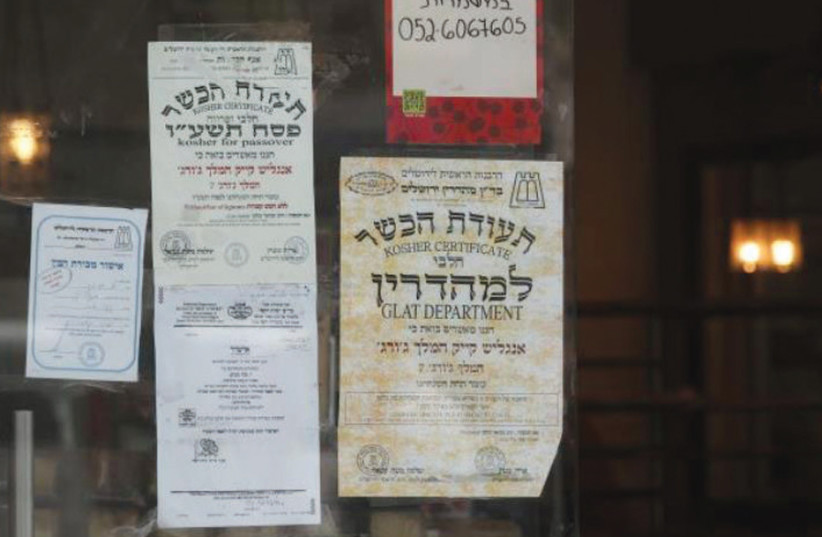Kahana’s kashrut reforms get rabbinical backing
Senior religious-Zionist rabbis back end to Chief Rabbinate monopoly, after hardline rabbis opposed the measures.

Two senior religious-Zionist rabbis have come out in support of the reforms proposed
by Religious Services Minister Matan Kahana (Yamina) that would end the
Chief Rabbinate’s monopoly over kashrut supervision.
The
proposed reforms would encourage more food businesses to obtain kashrut
supervision, Rabbi Yaakov Medan, co-dean of the Har Etzion Yeshiva in
Alon Shvut and a respected leader in the religious-Zionist community,
told Kahana in a letter Saturday night. The measures would not undermine
the Chief Rabbinate, he wrote.
It
was important to preserve the respect and honor of the Chief Rabbinate,
provided it does not negatively impact the provision of effective
kashrut supervision, Medan wrote.
Last
week, Rabbi Eliezer Melamed, a respected arbiter of Halacha, expressed
support for Kahana’s measures, according to the Religious Services
Ministry.
Last
Monday, Kahana announced a program of reforms that would allow
independent kashrut authorities to provide supervision, with the Chief
Rabbinate functioning as a regulator and operating an inspection
authority to oversee their work.
The
program would end the Chief Rabbinate’s monopoly over kashrut
supervision. It was strongly opposed by the Chief Rabbinate and the
chief rabbis.
Last
Thursday, several senior rabbis in the hard-line wing of the
religious-Zionist community said they were against the reforms. The
reforms are opposed by the chief rabbis, and therefore they could not
support them, they said.
Petah
Tikva Chief Rabbi Micha Halevi expressed concern that since the reforms
allow for multiple independent supervision authorities, should a
business lose its kashrut license from one authority due to bad
practice, it could swiftly apply to a different authority for a new
license.
Care must be taken not to allow such a business to automatically obtain a license from another authority, Medan wrote.
“I
am convinced that this program will bring more businesses to use
kashrut and bring honest supervisors who are Torah scholars into the
market who will work for a dignified salary, which he will receive from
the kashrut authority and not from the business under supervision,” he
wrote.
One of the biggest deficiencies of the current system is that kashrut supervisors
are paid directly by the business they supervise. That situation is a
prime cause of corruption, according to the State Comptroller’s Office,
and the High Court of Justice has ruled it must stop.
“We
are all committed to the honor of the rabbinate and to the honor of the
rabbis, but also to the mitzvah of the Torah, ‘You shall not fear any
man,’ when we come to strengthen such a vital and beloved mitzvah as the
mitzvah of the kashrut of the food entering our mouths,” Medan wrote.
Any
reforms must be approved by the Chief Rabbinate, a group of the most
senior and respected conservative religious-Zionist rabbis, including
Rabbi Haim Druckman, Rabbi Dov Lior, Rabbi Yaakov Ariel and Rabbi Haim
Steiner, wrote in a letter last Thursday.
“Although
there is a need for improvement on specific issues, such as kashrut,
everything must be done only with the agreement of the Chief Rabbinate,”
they wrote.



No comments:
Post a Comment